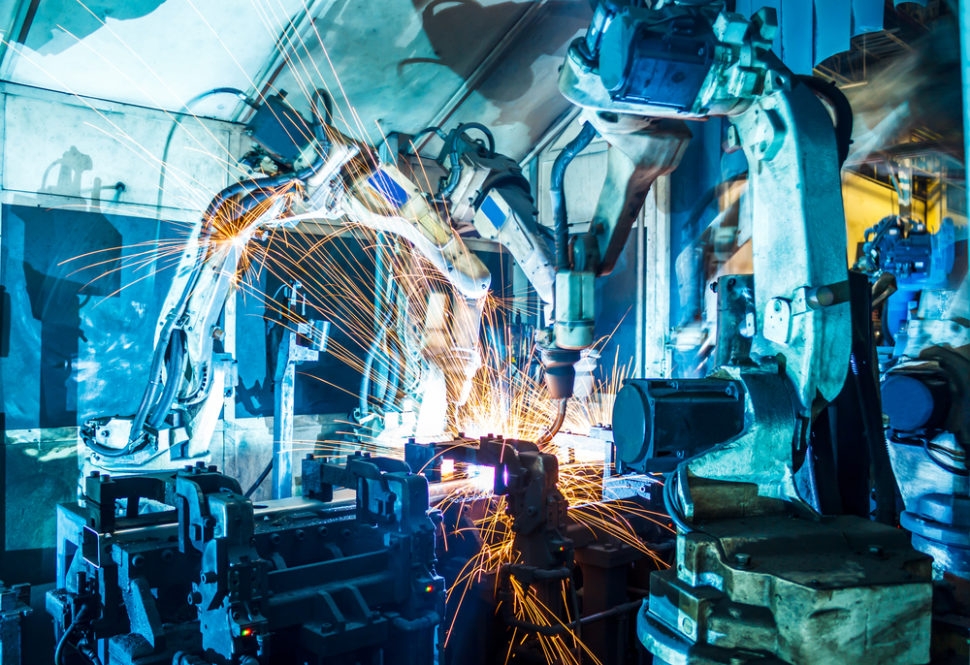New ventures more pronounced in first half
 |
| More foreign investors are venturing into Vietnam |
Multinational corporation Techtronic Industries (TTI), which is developing a $650 million plant complex in Saigon High-tech Park, recently met with more than 100 domestic suppliers to find a vendor for its project, which will focus on manufacturing hand-held cordless power tools and outdoor power equipment while being at the forefront of lithium-ion batteries, digitally-controlled motors and tools, and wireless applications.
Vietnam is very attractive for TTI due to its deep integration into the global market with its recent free trade agreements signed, especially the ASEAN-Hong Kong Free Trade Agreement which came into effect a year ago, and the new EU-Vietnam Free Trade Agreement.
According to Nate Easter, executive vice president of Global Sourcing and Outdoor Product Operations from TTI, domestic vendors would be an essential factor to ensure the success of its incoming complex, which is the second-largest plant of TTI’s global network, combined with a research and development (R&D) centre.
TTI expects to have an annual production value of $1.5 billion by the third year and achieve up to $3 billion by the sixth year. It also targets $1 billion in annual localised supply and expects to increase local suppliers from 80 now to 150 over the next few years. TTI was not the only company which has processed operationsin Vietnam in the first half of the year.
In February, HEINEKEN Vietnam also poured an additional $68.8 million into its factory in the southern coastal province of Ba Ria-Vung Tau.
The beer producer was green-lit by the local authorities to raise its investment capital from $312.5 million to $381.3 million.
With the additional funding, HEINEKEN Vietnam expects to increase the annual capacity of its factory in Ba Ria-Vung Tau from 610 million to 1.1 billion litres in 2020.
Meanwhile, in March, America’s Universal Alloys Corporation (UAC) held the inauguration ceremony for the first phase of an aerospace component factory in the central city of Danang. With registered investment of $170 million, the factory aims to manufacture and install aerospace components from aluminium alloys and composite.
It will be capable of manufacturing and assembling around 4,000 aircraft components, all for export. Once put into operation, it is estimated that annual export revenues will reach $25 million by 2021, $85 million by 2022, and $180 million after 2026.
UAC is a leading global manufacturer of aircraft components for aerospace companies such as Boeing, Airbus, Embraer, Bombardier, and their associated supply chains. This is its first facility in Vietnam and Asia as a whole to serve the global aerospace industry.
Last month Qualcomm Vietnam, a subsidiary of Qualcomm Technologies, Inc., officially opened an interoperability testing laboratory located in Hanoi, the company’s first R&D lab in Southeast Asia.
With these new facilities, Qualcomm Vietnam is further strengthening its commitment to the country and further enables local enterprises to innovate and deliver Vietnamese-made products.
In addition to that, Ba Ria-Vung Tau also granted approval decisions and investment licences to several projects, including those of Japan-based Seiko PMC Corporation ($28 million), SeAH M&H Vietnam ($35.3 million), and Arakawa Chemical Industries ($45.6 million).
According to Michael Kokalari, chief economist from Vinacapital, a new wave of foreign direct investment (FDI) into Vietnam is imminent. “This is being driven by global events, including the US-China trade war, the ongoing pandemic, and other factors,” Kokalari said in his latest statement released in June.
The amount and quality of this new wave of FDI are largely up to local policymakers, he added, because there are few countries in the world as intrinsically attractive to multinational manufacturers as Vietnam.
Kokalari cited that this next wave of FDI will have a bigger impact on Vietnam’s economy than previous inflows because multinationals now have an incentive to help local firms “move up the value chain”, in order to build supply chains in Vietnam capable of supporting those foreign-invested companies.
The EuroCham Whitebook 2020 released at the end of June stated that Vietnam’s stable macro-economic climate and single digits of inflation are increasing the confidence of investors in this country.
“Since becoming a member of the World Trade Organization in 2007, Vietnam has continued to reform its legal framework so that it is better aligned with global standards. As a result, the country has become more attractive to foreign enterprises and international investors,” stated the Whitebook.
In particular, Vietnam’s low cost of doing business, strong economic growth, and business-friendly economic environment make it an attractive destination for FDI, it added.
What the stars mean:
★ Poor ★ ★ Promising ★★★ Good ★★★★ Very good ★★★★★ Exceptional
Related Contents
Latest News
More News
- VNPAY and NAPAS deepen cooperation on digital payments (February 11, 2026 | 18:21)
- Vietnam financial markets on the rise amid tailwinds (February 11, 2026 | 11:41)
- New tax incentives to benefit startups and SMEs (February 09, 2026 | 17:27)
- VIFC launches aviation finance hub to tap regional market growth (February 06, 2026 | 13:27)
- Vietnam records solid FDI performance in January (February 05, 2026 | 17:11)
- Manufacturing growth remains solid in early 2026 (February 02, 2026 | 15:28)
- EU and Vietnam elevate relations to a comprehensive strategic partnership (January 29, 2026 | 15:22)
- Vietnam to lead trade growth in ASEAN (January 29, 2026 | 15:08)
- Japanese business outlook in Vietnam turns more optimistic (January 28, 2026 | 09:54)
- Foreign leaders extend congratulations to Party General Secretary To Lam (January 25, 2026 | 10:01)

 Tag:
Tag:




















 Mobile Version
Mobile Version